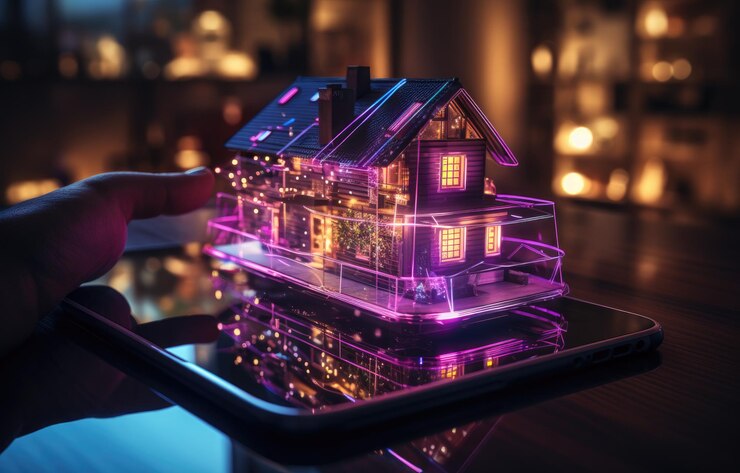Tips
The Future of Property Management: How Tech is Streamlining Rentals

The future of property management—what a world, right? Rentals, real estate tech, and all that come with it, are on the verge of an evolution. Maybe you’ve noticed. If not, you will soon. Things are shifting, bending, and, in some cases, breaking.
Gone are the days of clipboards, paperwork, and manually filling in tenant information. Gone too, are endless lines of tenants waiting in an office to report maintenance issues or send their rent checks. We’re talking about digital property tools.
You’ve heard the buzz: automation, smart rentals, artificial intelligence, data analytics. But what does it all mean? What does this tech do to the bones of the industry? What’s next for property management?
Digital Property Tools and Their Evolution
Let’s get into the meat of it. It’s more than just fancy software; it’s a complete rework of how property management operates. Digital property tools? They’re not some futuristic gimmick—they’re here, they’re happening.
A survey in 2020 showed that 84% of property managers were already using property management software to reduce time spent on administrative tasks. Think about that. No more scattered spreadsheets, endless email threads, or lost paperwork.
Tools like AppFolio, Buildium, and Propertyware—these platforms streamline almost every aspect of property management.
They integrate listings, tenant screening, lease signing, rent collection, and maintenance requests. One login. One dashboard.
Everything you need. No more bouncing between different tools for each task. You could list a property, approve an applicant, and collect their deposit all from your phone while sipping your coffee. And rent collection?
Automatic reminders, late fees applied digitally, no need to chase tenants for checks that got lost in the mail. Tenants prefer it too. According to Zillow, over 50% of renters prefer paying their rent online. The shift is undeniable.
Now, imagine you’re a property manager. You used to spend hours managing financials, now you just get a report sent to your inbox—automatically.
Sounds nice, doesn’t it? That’s the magic of real estate tech. It’s not some distant dream. It’s already happening, wrapping itself around the industry like a vine, transforming it from the ground up.
Smart Rentals: Living in a Connected Home
Next up, let’s talk about smart rentals. You know, those properties decked out with all the latest gadgets. Smart locks, smart thermostats, smart lighting, smart security systems—you get the idea. It’s tech that transforms how tenants interact with their space.
You’re not fumbling with keys anymore; you’re tapping your phone to lock and unlock your door. Maybe your home is adjusting the thermostat for you, learning your schedule, turning down the heat when you’re out and about, turning it back up when you’re on your way home. According to Rent.com, over 40% of renters prefer properties with smart home features.
For landlords, it’s not just about giving tenants a high-tech lifestyle, though that certainly helps. It’s about reducing overhead costs, improving efficiency, and minimizing damage.
Think of a smart water detection system that senses leaks and sends out an alert before any real damage is done. Or smart lights and thermostats that reduce energy consumption when no one’s home.
Smart homes can save up to 30% on energy costs annually, according to the U.S. Department of Energy. That’s real savings. That’s tech working for you, instead of you working for the tech.
Smart rentals are also a great marketing tool. Tenants are increasingly tech-savvy, and smart rentals cater to that demographic.
Offering these features isn’t just about convenience—it’s about attracting the right kind of tenant and setting yourself apart in a crowded rental market. In an industry where vacancy rates can make or break your bottom line, smart rentals are, well, smart.
Real Estate Tech
But the real revolution? It’s happening behind the scenes, driven by data. Property managers are swimming in numbers—real estate tech tools are making sense of it all. Think predictive analytics.
Data shows you when you should raise the rent, what neighbourhoods are trending, how long tenants stay, or even whether they’re likely to renew their lease. That’s no small thing. That’s foresight, precision, and, above all, profit.
Predictive analytics? More than a buzzword. It’s decision-making on steroids. You’re not just reacting to market trends anymore—you’re anticipating them. You’re ahead of the curve, and your competitors? They’re left wondering why they didn’t jump on this bandwagon sooner.
In fact, a Deloitte study found that 63% of property management companies are using predictive analytics to inform their decisions, and those numbers are climbing.
More than just tenant behavior, data can help property managers optimize their business in ways that weren’t possible even a decade ago. Want to reduce tenant churn? Real-time feedback and surveys help you see where improvements are needed before problems escalate.
Got a large portfolio? Property management software can track which properties are performing best, down to the last penny. You’re not just managing buildings anymore. You’re managing a high-efficiency machine, and every part of it is connected.
Keep in mind that technology offers many benefits due to effective data management. At the same time, if someone can get the same access, they can cause serious damage. To protect yourself, you should use strong passwords, and secure your online identity and IP address.
Here, how to check IP and almost as easily, it can be installed by hackers, web services, etc. Knowing the IP address, attackers can arrange a targeted hacker attack.
Automation and AI

Automation and AI? They’re doing more than cutting out busywork. They’re changing the way property managers think about their day-to-day operations. Let’s talk chatbots. Tenants don’t need to wait hours (or days) for a response to basic questions.
AI-powered chatbots handle the majority of tenant inquiries in real-time. Rental properties‘ due dates, maintenance schedules, lease terms—answered instantly. By 2025, experts predict that AI will save property managers up to 30% of their time, letting them focus on more strategic, high-touch tasks.
How about lease agreements? Traditionally, it was all about signing papers, right? Now, it’s about smart contracts and blockchain-backed agreements. These digital contracts mean secure, transparent transactions, with no intermediaries or third parties involved.
Blockchain ensures every step of the process is logged and tamper-proof. Vulnerabilities can only exist due to weak security measures on one side.
At a minimum, you can use VeePN to protect yourself from most of them. Tenants? They can sign from anywhere—no need to be physically present.
This tech goes hand-in-hand with the increasing demand for remote capabilities, especially post-pandemic, when virtual interactions became the norm rather than the exception.
The Human Touch: Still Critical
Yet, with all this technology, I don’t think the human element is going away. Property management, for all its digital tools, is still about people.
Tenants are not robots. And even though AI can respond to most inquiries, there’s still a need for that personal touch, the ability to handle complex situations with empathy. Automated systems can streamline much, but they can’t replace human relationships.
Property managers must strike a balance. A survey conducted by NAA showed that 76% of tenants value customer service as a key component in their rental experience.
While digital tools can enhance communication, nothing beats face-to-face interactions when it comes to building trust and loyalty. Tenants who feel valued by their landlord or property manager are far more likely to stay long-term and refer others.
Challenges and Considerations
Of course, it’s not all sunshine and rainbows. Introducing tech into property management isn’t without challenges.
First, there’s the issue of privacy. As more data is collected, both landlords and tenants must be vigilant about security. With smart rentals come smart risks. Data breaches, hacking—these aren’t hypothetical problems. They’re real, and they can have serious consequences.
Plus, the cost. Small-scale property owners may find it tough to afford cutting-edge property management tech.
The initial investment can be steep, especially for those managing only a few properties. But as with most technological advancements, costs tend to go down over time. Eventually, the savings from reduced operational expenses and increased efficiencies will likely outweigh the upfront costs.
Conclusion
In sum, the future of property management is more than bright—it’s teeming with possibilities. From digital property tools to smart rentals and AI-powered chatbots, the industry is undergoing a massive transformation.
Real estate tech is streamlining processes, slashing operational costs, and improving tenant satisfaction. Property managers who embrace these changes will find themselves not just surviving, but thriving in a tech-driven world. For those who resist? They might just get left behind, wondering what hit them.




